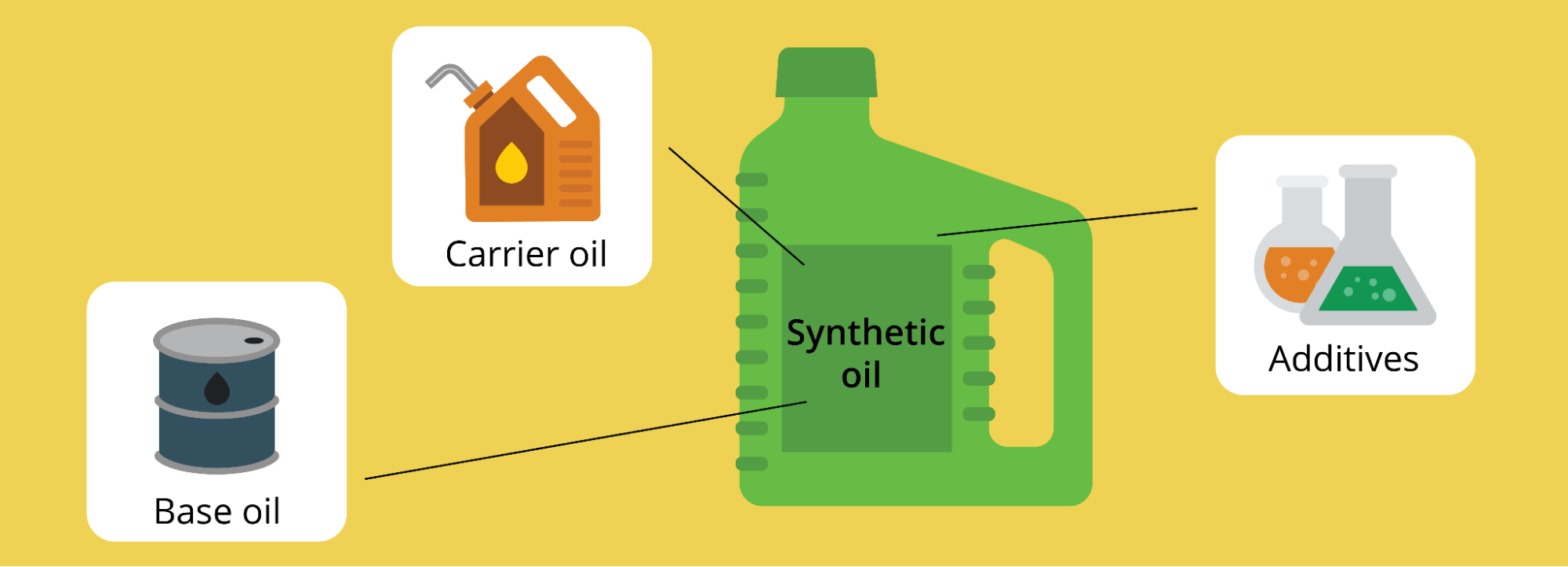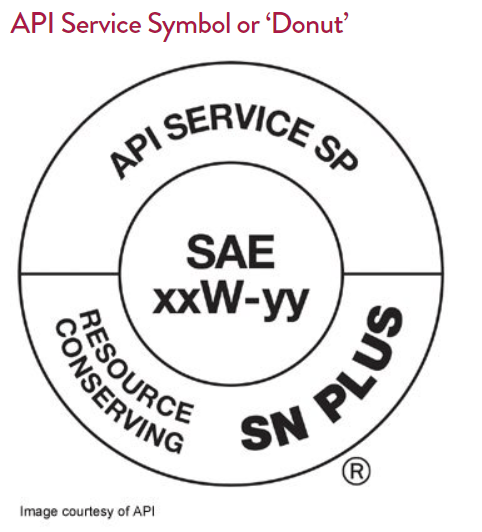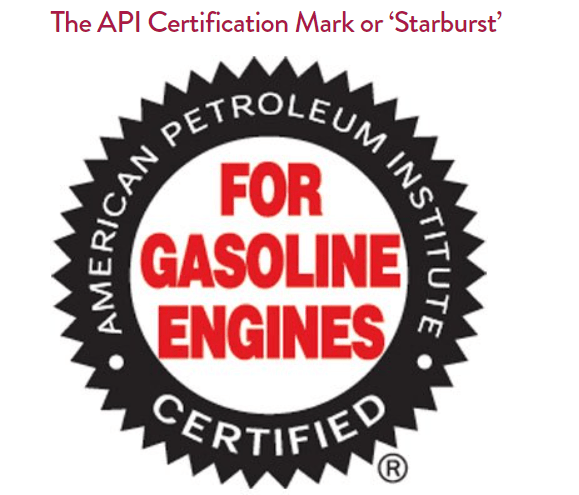Car manufacturers recommend changing the oil regularly, depending on the vehicle’s age, mileage, maintenance history, and other factors, but not all synthetic oils are created equal. They come in different forms and have varying amounts of additives, which can impact their longevity and performance.
Looking for the best synthetic motor oil? Here’s what you should know about it so you can make the right choice for your engine.
What Is Synthetic Oil?
Synthetic motor oils are chemical products made from a base oil, a carrier oil, and additives. The base material usually consists of crude oil, whereas the other ingredients are derived from petroleum.
These products have been around since 1929, but they only became popular over the past 50 years. Back in 1972, AMSOIL developed the first synthetic oil to meet the American Petroleum Institute’s quality standards. It was guaranteed to last 25,000 miles or one year, whichever came first, and outperformed conventional oil on all tests.
Mobil launched its own synthetic oil in 1974, and other manufacturers followed suit over the next decades. Their formulas were initially used on high-performance vehicles but gradually became mainstream.
Today, synthetics are a preferred choice for consumer vehicles and aircraft jet engines, offering superior protection. In 2019, 70% of all new cars used either full- or semi-synthetic (blended) oils.

The Best Synthetic Oil Brands on the Market
Now that you know more about synthetic oils, it’s time to choose one that meets your needs. Our advice is to opt for a premium brand that carries the seal of approval from industry associations.
Note that if you decide to buy from Amazon, you can enter your vehicle’s license plate number and technical data. After that, Amazon will recommend compatible products, including synthetic oils that match your car’s engine.
Here are our favorite picks:
1. Valvoline Full Synthetic High Mileage
Why We Love It: This full-synthetic oil from Valvoline uses MaxLife Technology to protect older engines. It contains anti-wear additives to maximize engine life (it claims to have 50% better wear protection than other brands), prevent leaks, and reduce deposit formation. Although it’s designed for cars with over 75,000 miles, you can use it for newer vehicles, too.
The Full Synthetic High Mileage oil comes in six viscosity grades, including 0W-20, 10-W-30, SW-20, SW-30, 10W-40, and 20W-50. This makes it suitable for different seasons and climates. Plus, it protects against sludge and keeps your engine clean year-round.
2. Mobil 1 Advanced Fuel Economy Full Synthetic Motor Oil
Why We Love It: Mobile 1’s Advanced Fuel Economy Full Synthetic Motor Oil can last up to 10,000 miles and comes in two viscosity grades: 0W-16 and 0W-30. What makes it stand out is its triple-action formula designed for enhanced engine performance, protection, and cleanliness.
This synthetic oil was created with fuel economy in mind. It’s rich in additives and other compounds that increase engine efficiency, reducing fuel consumption by up to 2%. That means you could save around $0.06 per gallon of fuel.
3. Pennzoil Platinum Full Synthetic Motor Oil
Why We Love It: The Platinum Full Synthetic oil is designed to extend engine life while improving fuel economy. It comes in four viscosity grades and contains natural gas for optimal engine performance. It also contains high-performance additives designed to help keep the pistons and engine parts clean, preventing deposit buildup.
This formula has a lower price tag than similar products, offering great value for the money. And, according to the manufacturer, it delivers 40% better performance than conventional oil. We also like that it’s suitable for most types of engines, including older models, and offers superior protection against friction.
4. Castrol Edge 5W-30 Advanced Full Synthetic Motor Oil
Why We Love It: Castrol’s Edge motor oil offers up to six times better wear protection and 10 times higher performance in hot weather than other products in its class. Plus, it can last up to 10,000 miles between oil changes. It also uses a special technology to reduce friction and deposit buildup, keeping your engine running smoothly.
This full-synthetic oil is currently available in four viscosity grades, and each version has distinct properties. The 5W-30 formula will protect your engine from high temperatures, making it suitable for the summer season. The acceleration will feel sharper, the engine will respond faster, and you won’t have to worry about low-speed pre-ignition.
5. Mobil 1 5W-30 Extended Performance Full Synthetic Motor Oil
Why We Love It: The 5W-30 Extended Performance motor oil is a fantastic choice for year-round driving. Not only is it resistant to both low and high temperatures, but it can also extend the engine’s life.
Like Mobil 1’s Advanced Fuel Economy synthetic oil, this product features a triple-action formula for optimum performance. What’s more, it can last up to 20,000 miles between oil changes and offers up to 20 times better high-temperature protection than other brands.
6. Pennzoil Synthetic Blend 5W-30 Motor Oil
Why We Love It: Pennzoil’s synthetic blend oil offers superior protection without breaking the bank. It’s suitable for all seasons and most types of vehicles, from trucks to passenger cars. But what sets it apart is the Active Cleansing Technology, which is designed to keep dirt and residues out of your engine.
Its formula may also help prevent low-speed pre-ignition, reducing damage to the engine’s components. Overall, it’s a high-quality product that can easily compete with full synthetic oils.
Traffic school can help you keep a clean driving record, prevent insurance increases, and more!
How to Choose the Best Synthetic Oil for Your Car

Synthetic oils vary in quality, depending on their composition, viscosity, and brand. And the right one for you can depend on your car’s make and model, as well as the weather.
That’s why it’s important to choose synthetic oil that meets all the right criteria.
Here are some factors to consider.
Types of Synthetic Oil
These lubricants come in two varieties: full synthetic and blended, or semi-synthetic oils.
Full synthetic oils can withstand extreme temperatures better than synthetic blend oils. They also tend to last longer and deliver higher performance.
To keep things simple, full synthetic oils are more refined and have a higher purity than synthetic blends. However, the latter are still superior in quality to conventional motor oil.
Oil Viscosity
Motor oils, including synthetic oils, have different viscosity grades ranging from 0W-16 to 20W-50.
“W” stands for winter, and the number that precedes it indicates how oil flows when it’s cold outside. The higher this number, the slower the oil will flow at vehicle start-up in cold weather.
The second number (16 to 50) indicates an oil’s viscosity at normal engine temperatures. Again, the higher this number, the slower the oil will flow when you start the car.
Low-viscosity oils, such as 0W-20, provide better fuel economy. They flow faster and easier, protecting the engine at low temperatures. By comparison, high-viscosity oils offer superior protection at high temperatures.

Check the vehicle owner’s manual to determine what oil viscosity you should choose. In general, newer cars require lower viscosity oils.
API Service Classifications
The American Petroleum Institute classifies motor oils based on their performance level. Each oil has a “donut” symbol that specifies its type, rating, and engine compatibility.

For example, you’ll choose a synthetic oil labeled “SM” for engines manufactured after 2010. If your car’s engine was manufactured after 2020, look for the “SN” designation. Consider the type of engine (diesel vs. gasoline), too.
Again, consult the vehicle owner’s manual to figure out what type of motor oil you need.
Your Vehicle’s Age
Consider using high-mileage oils if your car has traveled more than 75,000 miles.
These are fully synthetic lubricants enhanced with additives and seal conditioners that can reduce leaks, protect against wear and tear, and increase engine life.
The API “Starburst” and Other Certifications
Choose a synthetic oil approved by the American Petroleum Institute (API) to ensure it meets the latest industry standards.
Look for the API “starburst” on the oil’s label. It’s usually listed next to the API Service symbol.

Alternatively, select an oil approved by the International Lubricant Standardization and Approval Committee (ILSAC) or the Association of Certified European Automakers (ACEA).
For example, Mobil engine oils are certified by some or all of these organizations. The same goes for other trusted brands like Castrol, Valvoline, and Shell.
Is Synthetic Oil Better than Conventional Motor Oil?
Synthetic oils undergo extensive processing, allowing manufacturers to control molecular size and purity. The result is a chemically stable lubricant that can handle high operating temperatures.
These products have fewer impurities and lower viscosity than conventional oil. Therefore, they ensure better protection, less friction, and increased performance in extreme weather. Other advantages include:
- Less likely to oxidize than conventional lubricants
- Can last up to three times longer than standard motor oil, per ThoughtCo.
- Can withstand extreme temperatures
- May improve fuel efficiency over time
- Superior anti-friction properties
- High flash and fire points
BMW and other vehicle manufacturers only recommend synthetics. These oils can extend the engine’s life by protecting against high temperatures, sludge, wear-and-tear, and deposit buildup. They also flow better in low temperatures than conventional oil, making them suitable for winter driving.
Due to their low viscosity, synthetics take longer to vaporize than standard motor oil. According to ThoughtCo., they lose only 4-10% of their mass in high-heat conditions. By comparison, standard motor oil loses up to 20% of its mass.
What this means is that synthetic oils have a longer life than conventional oils, resulting in potential cost savings. Moreover, they keep the engine operating smoothly, which may improve fuel economy.
While it’s true that synthetic oil comes with a higher price tag, it pays for itself over time.
